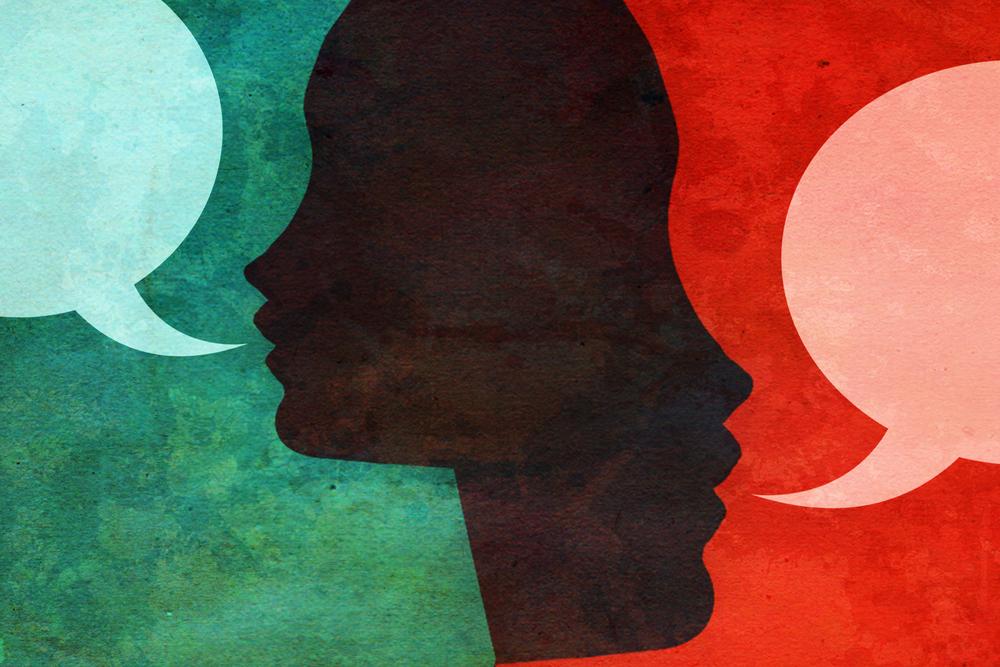Ambiverts are those who fall relatively in the middle of being introverted and extroverted – they identify with characteristics of both personality traits, and can even adapt depending on the situation. It’s almost like being ambidextrous, but with your personality. “Ambivert” is a relatively new term and it’s likely you’re an ambivert if you feel that “introvert” or “extrovert” doesn’t fully describe you.
You’re an ambivert if:
1. You feel comfortable socializing and meeting new people, but you’re also fine with alone time.
Introverts really value alone time, and extroverts would rather do nothing with someone than do nothing by themselves. When it comes to “recharging,” sometimes spending a day on your own is a nice change of pace, and other times it feels great to go out and spend time with friends. If you have plans for the weekend, awesome. But if you don’t or if they get cancelled, that’s fine too, you had things to do anyway.
Some days you'd prefer one over the other, but for the most part, you don’t have a strong preference.
2. You know when to be outgoing and when to be reserved. You naturally adapt to the situation.
When you’re with someone who’s very extroverted or very introverted, you tend to balance out the situation by becoming the opposite. It has become a subconscious habit for you – when you’re with a bunch of outgoing people you don’t really try to fuel the fire, but you also feel the need to liven up the situation when you’re around people that are quiet.
3. When you read about the characteristics of introverts or extroverts, you can relate to both.
Even if you lean a little bit either way, it seems like some days you'd classify yourself as extroverted, but other days introverted. You tend to thrive at more intimate get togethers like dinner parties or barbecues, but at big events like concerts you aren’t as likely to draw attention to yourself.
4. Sometimes you’re immersed in the moment and other times you’re just observing your surroundings and the people around you.
Getting a conversation going isn’t difficult, nothing to stress about. But then when you’re with a group of people, you feel content with just listening and laughing along. You’re comfortable with thinking to yourself, especially when you feel like you don’t need to add to the conversation to keep it going.
5. Small talk doesn’t scare you, but at times it seems a little disingenuous.
You do see the value in small talk though, as it leads to the possibility of building up to more meaningful conversations. You’ve got to start somewhere though.
6. Some people would describe you as quiet, and others would say you’re very sociable.
Coworkers or classmates who have only seen you in a professional or academic setting see the side of you that’s reserved because that’s how you are in those situations. But what they don’t know is that you’re perfectly comfortable with putting yourself out there, when the situation calls for it.
7. Spending too much time with others can be a little draining, but spending a lot of time alone can leave you feeling gloomy and unproductive.
When you’re working on your own for a while, you like to get up to take a break and talk to people. It'd probably be the worst thing ever to have to sit alone and work by yourself for an extended amount of time. However, it’s great to get away for a bit when you’ve been around people for awhile. Maybe you didn’t even realize you really needed that.
———
Essentially, being an ambivert is like being a jack of all trades. Ambiverts are pretty flexible and can adapt well to whatever environment they’re in. There are those who have more introverted tendencies and those with more extroverted tendencies, but they’re pretty much half and half.
Wouldn’t it be great if personality tests like Myers-Briggs included an option of being ambiverted?
*photo of head with connecting threads, conversation, and woman in office via Shutterstock








